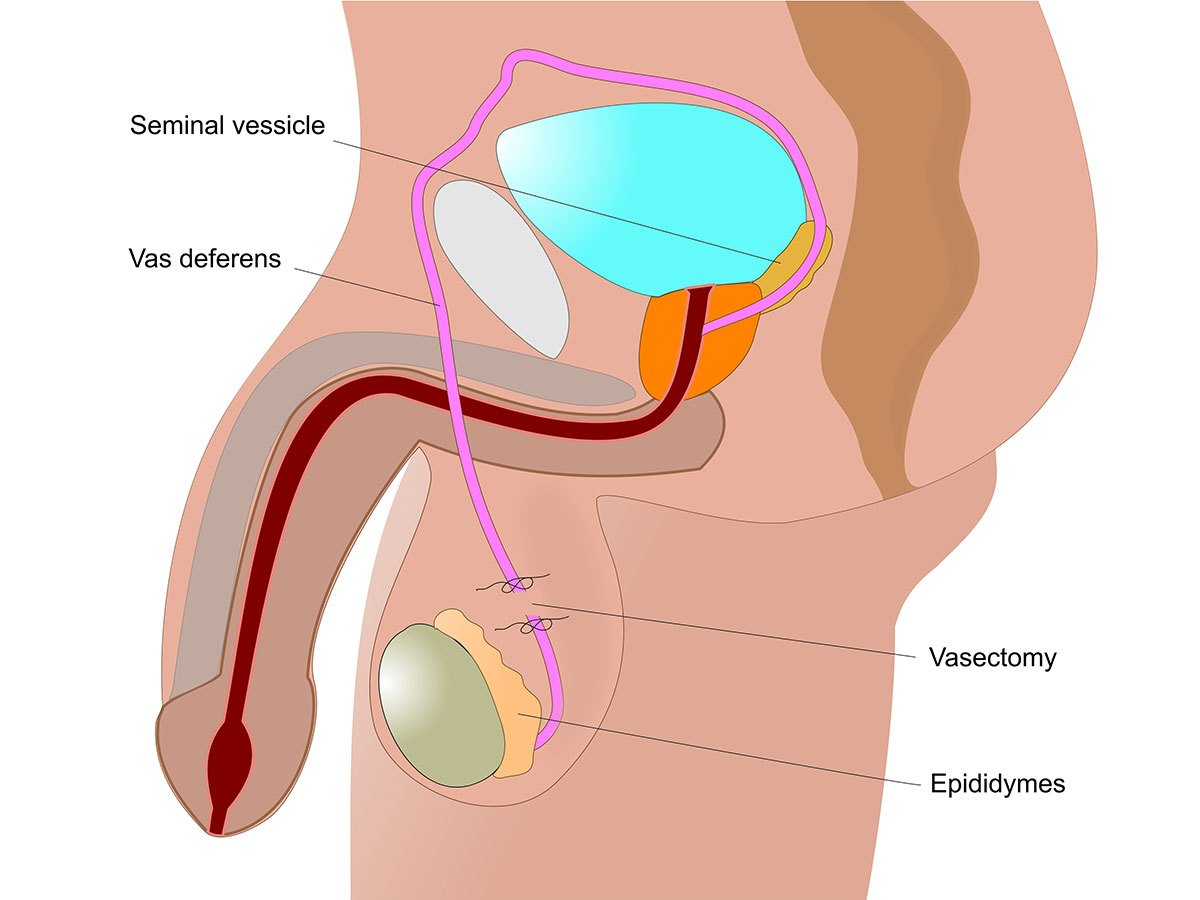Vasectomy in Cyprus
Search and Compare the Best Clinics and Doctors at the Lowest Prices for Vasectomy in Cyprus

Find the best clinics for Vasectomy in Cyprus
No clinics available
Russian Federation offers the best prices Worldwide
Price: $ 275

- Home
- Cyprus
WHY US?
At Medijump, we're making medical easy. You can search, compare, discuss, and book your medical all in one place. We open the door to the best medical providers worldwide, saving you time and energy along the way, and it's all for FREE, no hidden fees, and no price markups guaranteed. So what are you waiting for?

Free

Best Price

Widest Selection

Risk-Free
What you need to know about Vasectomy in Cyprus

Vasectomy, sometimes referred to as male sterilization, is a form of birth control for men to prevent pregnancy. The procedure blocks the supply of sperm to the semen when men ejaculate. Men who undergo this procedure can still experience orgasm and ejaculate.
It acts as a form of permanent birth control, preventing sperm from reaching the semen, thus eliminating the chance of pregnancy.
What does a Vasectomy Procedure Involve?
Vasectomy is performed under local anesthetic, meaning that you will be awake but you will not feel anything. Your doctor will remove and seal the tubes (vas deferens) that carry sperm from your testicles. Once the tubes have been cut, your sperm cannot reach your semen or leave your body anymore.
How Long Should I Stay in Cyprus for a Vasectomy Procedure?
You can leave the hospital on the same day of the procedure, but you will need to stay in Cyprus for at least 2 to 4 days. During your stay, you will need to attend hospital check-ups. If your doctor does not use dissolving stitches, removal of stitches will take place during the check-up.
What's the Recovery Time for Vasectomy Procedures in Cyprus?
Rest for at least 24 hours after the procedure and avoid physical activities, such as exercise and sexual intercourse, for around a week. You should be able to go back to work in 3-5 days.
What sort of Aftercare is Required for Vasectomy Procedures in Cyprus?
There is no special diet you need to follow and do not have unprotected sex until you have ejaculated at least 15 to 20 times. Once you have had 15 to 20 ejaculations, you can undergo a follow-up test with your local doctor to examine if your semen is free of sperm.
What's the Success Rate of Vasectomy Procedures in Cyprus?
Vasectomy is almost 100% effective. Unsuccessful vasectomy happens when the tubes re-join, but it is very rare. Risks and side effects are very uncommon, but if they do happen, they usually include infection, inflammation, bruising, and swelling.
Are there Alternatives to Vasectomy Procedures in Cyprus?
There is currently no alternative for male sterilization that is as effective as a vasectomy. The current best alternative for men is to use a condom during sexual activities or to ask the female partner to use birth control.
What Should You Expect Before and After the Procedure
Before the procedure, you need protection to avoid unwanted pregnancy. After the procedure, you no longer need any form of protection as your semen is free of sperm. However, the procedure will not protect you from any sexually transmitted infections.
Whilst the information presented here has been accurately sourced and verified by a medical professional for its accuracy, it is still advised to consult with your doctor before pursuing a medical treatment at one of the listed medical providers
No Time?
Tell us what you're looking for and we'll reachout to the top clinics all at once
Enquire Now

Popular Procedures in Cyprus
Prices Start From $500

Prices Start From $2,473

Prices Start From $683

Prices Start From $322

Recommended Medical Centers in Cyprus for procedures similar to Vasectomy

- Interpreter services
- Translation service
- Religious facilities
- Medical records transfer
- Medical travel insurance
- Health insurance coordination
- TV in the room
- Safe in the room
- Phone in the room
- Private rooms for patients available

- Interpreter services
- Translation service
- Religious facilities
- Medical records transfer
- Medical travel insurance
- Health insurance coordination
- TV in the room
- Safe in the room
- Phone in the room
- Private rooms for patients available

- Interpreter services
- Translation service
- Religious facilities
- Medical records transfer
- Medical travel insurance
- Health insurance coordination
- TV in the room
- Safe in the room
- Phone in the room
- Private rooms for patients available

- Interpreter services
- Translation service
- Religious facilities
- Medical records transfer
- Medical travel insurance
- Health insurance coordination
- TV in the room
- Safe in the room
- Phone in the room
- Private rooms for patients available

- Interpreter services
- Translation service
- Religious facilities
- Medical records transfer
- Medical travel insurance
- Health insurance coordination
- TV in the room
- Safe in the room
- Phone in the room
- Private rooms for patients available

- Interpreter services
- Translation service
- Religious facilities
- Medical records transfer
- Medical travel insurance
- Health insurance coordination
- TV in the room
- Safe in the room
- Phone in the room
- Private rooms for patients available

- Interpreter services
- Translation service
- Religious facilities
- Medical records transfer
- Medical travel insurance
- Health insurance coordination
- TV in the room
- Safe in the room
- Phone in the room
- Private rooms for patients available

- Interpreter services
- Translation service
- Religious facilities
- Medical records transfer
- Medical travel insurance
- Health insurance coordination
- TV in the room
- Safe in the room
- Phone in the room
- Private rooms for patients available

- Interpreter services
- Translation service
- Religious facilities
- Medical records transfer
- Medical travel insurance
- Health insurance coordination
- TV in the room
- Safe in the room
- Phone in the room
- Private rooms for patients available

- Interpreter services
- Translation service
- Religious facilities
- Medical records transfer
- Medical travel insurance
- Health insurance coordination
- TV in the room
- Safe in the room
- Phone in the room
- Private rooms for patients available
Vasectomy in and around Cyprus
Cyprus is an island country in the Mediterranean Sea. The country is famous for its mineral wealth, splendid wines, dazzling beaches, and compelling culture. In addition, Cyprus is filled with classical ruins and century-old monasteries, and as the legendary birthplace of Aphrodite, it is also steeped in mythology. Due to its huge array of modern private medical centers equipped with excellent service, cutting-edge technology, and skilled doctors, Cyprus is also a thriving medical tourism destination. Foreign patients from all around the globe come to this country for a vast range of medical treatments, particularly bariatric surgery, cardiology, cosmetic and plastic surgery, and fertility treatments. Its spa and well-being resorts are also welcoming an increasing number of international medical tourists.
Popular Parts of Cyprus
The majority of tourists start their trip to Cyprus in Larnaca, it is the oldest city in Cyprus. It has a vast array of historical monuments, including Ayios Lazaros (the Church of Saint Lazarus), Stavrovouni Monastery, and Larnaca Medieval Castle. Besides its ancient buildings, Mackenzie Beach and Larnaca Marina are also popular among tourists. Not too far from Larnaca is Paphos, a charming city with exquisite natural beauty and all sorts of ancient ruins. The most popular attractions in this city include the Tombs of the Kings, the Old Town, Early Christian Basilica-St Paul’s Pillar, and Paphos UNESCO Archaeological Park. Nicosia, Cyprus’ capital, is also a popular destination.
Weather and Climate in Cyprus
Cyprus experiences a Mediterranean climate with four seasons and over 300 days of sunshine a year. The summer is long, warm, and dry, lasting from mid-May to mid-October. The winter starts in December and ends in February, bringing mild temperatures and more rain showers. Autumn and spring are short, but there is good weather.
Getting around in Cyprus
The main international gateway to Cyprus is Larnaca International airport. It serves international flights to many cities around Europe and the Middle East, including Kyiv, Abu Dhabi, London, and Moscow. In the south, the intercity bus system is reliable and great, but in the north, the bus services are often unreliable and do not seem to follow a timetable. Taxis are a safe and relatively inexpensive option. In the south, there are three types of taxi services: urban, trans-urban or interurban (shared and can be booked), and rural. In the north, taxis are only available in the main towns. Inside towns, buses are the best way to get around for those looking for a more affordable option. Taxis are more expensive, but they do offer more flexibility.
Tourist Visas in Cyprus
Nationals of EU countries, the United States, Australia, Canada, Britain, Iceland, Japan, and several other countries do not need a visa to visit and stay in Cyprus for up to 90 days. Other countries not listed in the visa-free agreement need to apply for a visa before entering Cyprus. It is best to consult the Cypriot Ministry of Foreign Affairs or contact the embassy to learn more about visa requirements.
Additional Information
- Local Currency: The euro (€) has been the official currency of Cyprus since 1 January 2008. The exchange rate from €1 is approximately US$1.17.
- Money & Payments: It is easy to find reliable ATMs in large towns and tourist areas. Major credit cards, such as Visa and MasterCard, are widely accepted in larger restaurants, shops, and hotels. However, if you plan to go to smaller towns or villages, it is best to ensure you have cash. Tipping is expected most of the time. Tip at least 10% of the bill, and at least 5% or round up to the nearest euro for taxi drivers.
- Local Language: Around 80% of Cypriots speak Greek as their first language, while Turkish is spoken by 10% of the population. English is widely spoken, especially in tourist areas.
- Local Culture and Religion: The main religion of Cyprus is Greek Orthodox, but Islam is the most prominent religion in the north.
- Public holidays: Some of the most celebrated holidays in Cyprus include Ohi Day, Christmas Day, Boxing Day, New Year’s Day, Epiphany, Clean Monday, Cyprus National Day, and Independence Day.
Popular Searches
- Plastic Surgery in Thailand
- Dental Implants in Thailand
- Hair Transplant in Thailand
- Breast Augmentation Thailand
- Gastric Sleeve in Thailand
- Gender Reassignment Surgery in Thailand
- Laser Hair Removal in Bangkok
- Botox in Bangkok
- Dermatology in Bangkok
- Breast Augmentation in Bangkok
- Coolsculpting in Bangkok
- Veneers in Turkey
- Hair Transplant in Turkey
- Rhinoplasty in Turkey
- Stem Cell Therapy in Mexico
- Rhinoplasty in Mexico
- Liposuction in Mexico
- Coolsculpting in Tijuana
- Rhinoplasty in Korea
- Scar Removal in Korea
- Gastric Sleeve in Turkey
- Bone Marrow Transplant in India
- Invisalign in Malaysia
- Plastic Surgery in the Dominican Republic
- Tummy Tuck in the Dominican Republic
- Plastic and Cosmetic Surgery in Poland
- Rhinoplasty in Poland
- Hair Implant in Poland
- Dental Implants in Poland
- IVF in Turkey